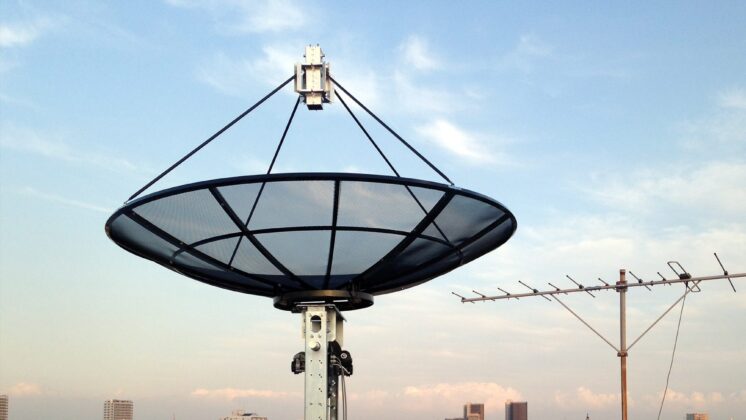Infostellar CEO Dr. Naomi Kurahara isn’t the type to do something halfway. After getting her PhD in electrical engineering, then researching and engineering satellite ground systems for years, she decided to start her own company.
The catch? She knew almost nothing about entrepreneurship. She’d read a handful of books on the subject, but that was it. Her strengths were her mastery over the subject matter—satellite ground systems—and the fact that she was eager to learn.
The second catch? She was pregnant with her first child—which meant navigating the hellish waters of being a first-year founder and first-time mother simultaneously.
Five years after founding Infostellar and making, as she says, “every mistake in the book,” Kurahara joined us to talk about some of the challenges and lessons she’s learned along the way.
“Just thinking about survival isn’t going to help.”
Insights: What is the number one factor that led to your success as a businesswoman?
Kurahara: Well, I can’t say that I succeeded yet. From summer 2019 up until last year, we weren’t doing very well. In the space industry, the overall business timeline is much longer—for product development, obviously something like software has roughly the same timeline, but rockets or satellites are much longer. As a result, the customer pipeline can be much longer, too. Sometimes two to three years. So we were struggling to hang on to customers, and that really affected team morale. We had a lot of people leave, and that didn’t look great to investors.
To maintain a fourteen-person team, you need between two and three million USD. So at the time, all I could think about was how to get three million dollars. It was my objective. [laughs] For me, my strategy was all about survival. How can I make sure that Infostellar will survive? So the whole team doubled down on all the traditional things: customer service, sales. And we survived.

But just thinking about survival isn’t going to help us exit, to get our IPO. I’m having to think of a new strategy now.
To exit, your revenue pie chart matters a lot. We need to increase our revenue, and we think partnering with some non-traditional space commercial companies—like AWS or Microsoft Azure—and getting government contracts could be the way to do that. That’s why we’re trying to set up a subsidiary in the U.S.
So having an objective, and then a strategy to reach the objective, are two really important things for business success.
“Our work helps people, and is going to help people.”
Insights: Why is it important to democratize satellite access?
Kurahara: GPS was the first example of how satellites can be game-changing. Moving forward, there will be more.
For example, telecommunications. Right now we’re talking using Google Meet, and the speed is enough, but it wouldn’t be enough for, say, a surgeon trying to do surgery. No ground internet would be enough—they would need intense speed and high-quality video, without any interruptions. That’s the future of satellite telecommunications.
These changes could really affect the quality of life for people in rural areas.
This is why I know that Infostellar is good. We’re doing good. Our work helps people, and is going to help people.
“With entrepreneurship, the problem is even knowing it’s an option.”
Insights: How can we increase the number of women who go into STEM fields or entrepreneurship?
Kurahara: I think exposure to technical toys, or technical things, is really important for helping girls develop an interest in STEM. Before the 1990s, before Windows even came out, my father’s hobby was computer programming. My brother and I were exposed to—and very interested in—my father’s coding. He was also an electrical technician, so there were always technical things around, and that led me to develop an interest.
It’s important to expose kids to that kind of thing equally, to give them an equal chance to develop an interest. Then when it comes time for them to choose what to study, they can choose STEM because they already have an interest, instead of for some other reason that may not last.
With entrepreneurship, the problem is even knowing it’s an option. Students in Japan graduate university, then join a big company. That’s the traditional path. Not many people know you can do something else like entrepreneurship. Or even if they do, they don’t know how to take the financial risk, or aren’t willing to take on the financial risk.

“I have never once wanted to quit and be a housewife.”
Insights: Do you feel being an entrepreneur in the space industry is more or less difficult as a woman?
Kurahara: On one hand, I think it’s less difficult. In the startup community, there’s really this atmosphere of, “We need more women!” So being a woman, people usually remember me easily. They think I’m interesting, or are willing to talk to me.
But on the other hand, business meetings, or even talking one-on-one, can sometimes be challenging. When you’re a woman talking to an older man, or even someone younger that’s just been in the space industry for twenty, thirty years or something, you’re starting in a lower place. They talk down to you. You have more to prove. They don’t believe you know what you’re doing, or that you understand the industry. And that can be frustrating.
I also have a child to look after. Looking after him and taking care of the home are my responsibility, so I’ve had to turn down business meetings after 6pm. That can be a bit of a challenge because many male colleagues are able to take meetings after six easily. My refusal can sometimes cause some problems.
One thing I learned when I really sat down and committed to having both a career and a family is that there are a lot of resources out there willing to help. It’s actually more of a problem of the people around you being willing to accept you.
But I have never once wanted to quit and be a housewife. I have always known that I wanted work in my life.
You know, my cofounder, Toshi, was motivated to start the company for the challenge of making something new. But for me, I just knew that I wanted to do something that had to do with space. Always space.



